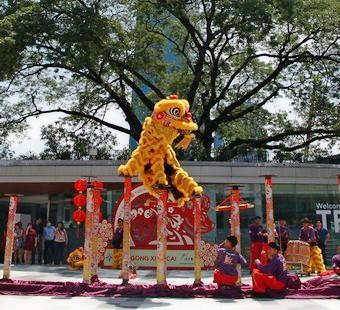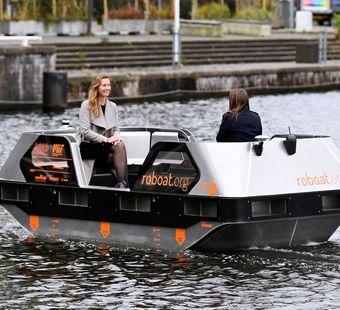Ever since fast food exploded out of the USA from the 1970s, they have found a ready home in most markets. Today, franchises like KFC, McDonald’s and Pizza Hut are household names the world over.
Arguably one of the earliest “fast foods” in history would be street food, something common throughout Southeast Asia. So it’s no surprise that Malaysian adaptations to the fast food restaurant concept started quickly and has only grown from strength to strength, redefining local cuisine today.
Homegrown pioneers
Hot off the heels of A&W and KFC’s success in Malaysia, nurse Nancy Chan and her husband Lawrence Liew opened Marrybrown in 1981. After that first fried chicken outlet in Johor Bahru, it didn’t take long for Marrybrown to become the first local F&B franchise business five years later. In 1992, Marrybrown opened its first international branch in China, and has since expanded to the Middle East, India, Africa and many more, with 500 outlets worldwide currently.
Key to its success is the ability to appeal to a wide demographic, across age, gender and income brackets, by offering simple yet delicious options for their customers. Marrybrown was the first to incorporate local fare, with curry mee, chicken porridge, Nasi Lemak MB and Hotouch Chicken, to name a few.
Sarawak powerhouse, SugarBun - which first started as an ice cream parlour in 1979, two years before Marrybrown opened - also holds strongly to the philosophy of catering to local clientele. Most of their early outlets reached even into rural areas in Borneo, such as Mukah, Kapit and Saratok.
Initially, the concept of SugarBun was largely American-inspired, bringing something new to Malaysian patrons, especially those in smaller towns.
“Back in the day, SugarBun was one of only two places in Kuching that people could enjoy
soft serve ice cream,” assistant marketing manager, Gregory Chin, shares.
However, in 2001, SugarBun began to introduce local flavours, such as deep-fried garoupa and tilapia served with local pickles and Sarawak Laksa.
This menu, combined with their classic Broasted Chicken and Kano Chicken, propelled SugarBun into a household name in Sarawak. Today, it has outlets in Sabah and Kuala Lumpur too.
“SugarBun also developed its very own online ordering platform to keep up with the demands of younger and tech-savvy clientele,” says Gregory, adding that the soon-to-be-launched app will include exclusive promotions, store locators and other features.
Tradition and innovation
In recent years, Malaysian fast food brands have made local flavours the star, rather than playing second fiddle to Western food.
Office worker favourite, Kampong Kravers, serves up classic Malaysian fare in a modern setting. With a side of familiarity and nostalgia, the food and décor appeal to urbanites far from the comforts of smalltown roots. Established in 2009, Kampung Kravers is famous for its spiral curry puffs, with 10 fillings to choose from, including the classics sardine or chicken curry and potatoes, as well as durian and cempedak.
Kampong Kravers’ extensive menu - from basmathi nasi lemak to asam pedas, Ipoh hor fun to bubur pulut hitam - is not only available for dine-in and takeaway at their various branches, but can also be purchased frozen from local supermarkets or ordered online.
Meanwhile, Luna Luna is adding a twist to local cuisine, with its flagship store in Setia City Mall opening its doors in 2019. The newcomer to the world of fast food offers Malaysian-inspired burgers and rice bowls, such as their signature LUNA burger which marries the beef burger with peanut satay sauce. Another fusion signature is their fish kerabu burger, an homage to the kerabu salad in burger form.
Luna Luna also serves up a variety of moreish mash-up beverages like the Cookies Gula Melaka milkshake, which has proven to be a big hit with patrons.
Redefining fast food
New Malaysian food brands have also decided to tackle fast food’s reputation as low quality and unhealthy. For instance, in 2012, three friends with no experience in the F&B industry, opened myBurgerLab, to provide a truly good fast food burger with premium ingredients.
Born out of friendship, myBurgerLab takes seriously the power of community and good quality food. They don’t skimp on ingredients; charcoal buns are baked from scratch and burger patties are ground daily and hand-packed.
Starting small, myBurgerLab first opened only for the dinner crowd at SeaPark, Petaling Jaya but has since expanded to cater for all-day dining at several different locations, from Cheras to Cyberjaya. They have also taken on another fast-food staple, with the opening of myPizzaLab, a pizza joint with the same concept of high-quality ingredients and a community feel.
Kubis & Kale has a different approach to new wave fast food, this time focusing on health. With Malaysians growing more health-conscious, yet increasingly busy, the founders of Kubis & Kale spied a gap in the market for quick yet highly nutritious meals, including for niche dietary preferences, like vegans. The philosophy of Kubis & Kale is to cook from scratch with whole, seasonal ingredients, and work with a community of farmers and suppliers who support and advocate real food.
Founder Aaron Lim’s mission is to redefine healthy food and prove it can be fuss-free: “Here at Kubis & Kale, we emphasise the choices we make about what we eat, where it comes from and how it’s prepared. We strive to make eating well easy, accessible and affordable.”
Local ingredients, such as tempeh, are incorporated into their poke bowls and a variety of healthy sauces are on offer to add flavour to the dishes. They are also known to experiment, with creative new dishes added to the menu regularly.
---
Photo credits:
Slider 1: https://www.facebook.com/MarrybrownMalaysia
Thumbnail & Slider 5: https://www.facebook.com/myBurgerLab
Slider 6: https://www.facebook.com/kubisandkale










